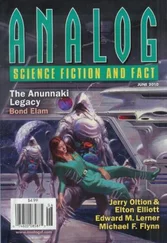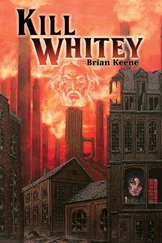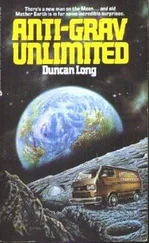Duncan Kyle - Whiteout!
Здесь есть возможность читать онлайн «Duncan Kyle - Whiteout!» весь текст электронной книги совершенно бесплатно (целиком полную версию без сокращений). В некоторых случаях можно слушать аудио, скачать через торрент в формате fb2 и присутствует краткое содержание. Год выпуска: 1976, ISBN: 1976, Жанр: Старинная литература, на английском языке. Описание произведения, (предисловие) а так же отзывы посетителей доступны на портале библиотеки ЛибКат.
- Название:Whiteout!
- Автор:
- Жанр:
- Год:1976
- ISBN:9780312868703
- Рейтинг книги:4 / 5. Голосов: 1
-
Избранное:Добавить в избранное
- Отзывы:
-
Ваша оценка:
- 80
- 1
- 2
- 3
- 4
- 5
Whiteout!: краткое содержание, описание и аннотация
Предлагаем к чтению аннотацию, описание, краткое содержание или предисловие (зависит от того, что написал сам автор книги «Whiteout!»). Если вы не нашли необходимую информацию о книге — напишите в комментариях, мы постараемся отыскать её.
Whiteout! — читать онлайн бесплатно полную книгу (весь текст) целиком
Ниже представлен текст книги, разбитый по страницам. Система сохранения места последней прочитанной страницы, позволяет с удобством читать онлайн бесплатно книгу «Whiteout!», без необходимости каждый раз заново искать на чём Вы остановились. Поставьте закладку, и сможете в любой момент перейти на страницу, на которой закончили чтение.
Интервал:
Закладка:
'What makes Hundred unique in Cold Regions Research installations,' Veron said, 'is that we can turn on heat and water in real quantity. So we have comfort. Heat, as you know, comes from the reactor, and with plenty of it, we can have all the water we need. This is the system that supplies it.'
'By melting snow, of course?'
'That's right. When Hundred opened, this well was started.
What happened was this: they used a jet of steam to bore a hole in the snow right here where we stand, and pumped the resulting water away. So there was this narrow circular hole running down. The melted snow was tested for pollution - radioactivity mainly -and then, when we were past the 1945 snow layer, Hiroshima and so on, they began to widen it.'
'The atom bombs contaminated snow here?'
'Oh yeah. They sure did. But below the 1945 layer, it's clean. Now, imagine the nozzle of a hose pipe, okay ? Well, that's what we got down there, only it's steam that's coming out. The steam melts snow, water gathers in the bottom, and a pump sucks it up. The nozzle rotates slowly, under the pressure of the steam -same principle as a lawn sprinkler, you know those things? - and that means you're cutting into the snow in a circle. You with me?'
'Ingenious,' I said.
'And simple. By regulating the steam pressure, you regulate how far into the snow you're cutting. Don't want to cut too far, for obvious reasons. So then, gradually, the nozzle has been lowered, to melt snow farther down, and what we have right under us here is a structure shaped like . . , well, like a giant onion maybe. Narrow neck, widening out gradually.'
I looked at the two pipes, one plastic, one flexible steel, that dropped down, from where we stood, into a black circle in the base of the huge ice chamber below. 'I don't see the nozzle, or the pump.'
Vernon smiled. 'This is only the top onion. One little problem we got with this well is that we can't cut the bulbs too wide, otherwise we might start undermining ourselves. So, to be safe, when the top one got down a hundred and fifty feet, we went through the whole process again, cutting a neck, then opening out another onion. So now we have a structure like three onions, one on top of the other, and the steam hose is turning four hundred and some feet down. Down there in the bottom of the third bulb there'll be around a hundred thousand gallons of water and the system's automatic. As the water's drawn up, the steam comes on and melts some more.'
'Very clever,' I said, meaning it.
He shrugged. 'Maybe a bit too clever. We don't want to sink too many wells at Hundred, because ice is plastic and who knows what might happen if it starts to fill its own empty spaces. So we stick with this one. But maintenance gets to be kind of tricky.'
'What kind of maintenance does it need?'
'Maybe I used the wrong word. Should have said inspection. We have to check that everything's okay; be sure the steam jet it cutting a circle and hasn't twisted so it's eating at the snow in one direction only.'
I blinked. 'You mean somebody really has to go down there?'
'Sure.'
'Tricky is an understatement, then. What you mean is dangerous.' I looked down the hole again. 'Are those things icicles?' From under the lip of the entry hole, monster spears of ice hung deep into the chamber like dragon's teeth.
'They're another little problem. Some of the steam floats up, and it either condenses or it melts snow on the way, and icicles form and keep growing.'
'And if one of those fell on somebody ?'
'We got to be careful, sure. In the second and third chambers they're even bigger, but we can't knock them down or they'd smash the equipment.'
'So who goes down ?'
Vernon said, 'A volunteer.'
'I can see why. Have you done it ?'
'Yeah, I have. Twice, as a matter of fact. I kind of liked it in a spooky sort of way. It's interesting. Down there you can see the layers of snow. Every year a new layer and the deeper you go, the more the layer's been compacted by pressure. You can read history down there. If you look real hard, you can see there's a thin black line in bulb two. That's when the volcano Krakatoa erupted.'
'But that was in Java! Did ash really get as far as this?'
He smiled. 'So the experts say. Must have been a hell of a bang, right ? Anyway, they reckon that around five hundred feet we'll be down to snow that fell in 1492 and the major says he's gonna bottle it and market Columbus water. Don't know if we'll make it, though. I reckon - personally, you understand
- that it's gotten too deep. They'll have to start another well.'
He switched off the wall lights, and I looked at him with a certain admiration. Nothing, I thought, would persuade me into the bosun's chair that hung from the well-head framework. 'Well, thanks,' I said.
'Where now?'
I was taken to the reactor trench where, understandably, they were rather too busy to want to entertain guests. Kelleher was already back at work, frowning and preoccupied, visibly tired with only two hours quick sleep behind him and delicate and highly responsible work to do. He looked up briefly and said,
'Come tomorrow and we'll show you the whole deal.' Next we went to the huge tractor shed, cut deep into the snow, where half-a-dozen giant tractors and bulldozers stood, as well as assorted Weasels and Polecats and, incongruous among them, two tiny orange Ski-doos, fast little snow-scooters. There were laboratories, mainly full of electrical and electronic equipment, the sleeping quarters, all like my own, stuffy and sweaty and windowless. There was a separate club for the sergeants, another for the enlisted men, and each had its rows of bottles, its tables for ping-pong and pool. The kitchens were probably as good as any of Mr Hilton's. Vernon explained it all cheerfully, still as impressed by it all as I was. It was even more impressive, as he pointed out, when you realized that every item, from the reactor itself to the knives and forks, had been hauled on sleds across a hundred miles of the icecap. When we'd finished, he invited me into the sergeants' club for a drink and I went with him, knowing what to expect. Nor was I wrong. Sergeants, in any army, are the people who have their affairs properly organized. An officers' mess has a social pyramid and its members range from youth to late middle age, so the social mix isn't naturally comfortable and some strain always shows. Sergeants, on the other hand, give or take a little seniority, are of similar age range, all mature men, and there are no problems about who calls who what. More important, they're the men who make an army work. So, while the officers'
club was comfortable and faintly scruffy, the sergeants' club gleamed. While the officers poured their own drinks, the sergeants had a white-jacketed barman, who'd clearly been drilled and drilled again and who, when he left the army, would undoubtedly get a job in some first-class hotel, because he was skilful and had style, and was kept steady to the mark by knowledgeable eyes. I was welcomed formally by the black master sergeant, who wore a collar and tie and well-pressed khaki, and who said it was his privilege to give me my first drink, sir, and what was its name. I smiled to myself and asked how the sergeants had solved the problem of stuffy bedrooms, and Master Sergeant Allen said it wasn't entirely solved but would I care to see ? He showed me his own room. The pi èce de résistancewas a mock window complete with curtains, and behind the glass was a huge blown-up photograph of treetops and blue sky. They had, he said, nearly a hundred such photographs, and the view was changed regularly. 'Why,' I asked, 'don't the officers have pictures, too ?'
He smiled politely. 'Maybe they didn't think about it.'
He also explained that they had discovered how much colour helped and had arranged to have kapok sleeping bags covered in bright material, to look like quilts. Then there was the matter of starched sheets, and a faint smell of pines and the humidifiers hanging on the central heating radiator. It was all, he said, mainly psychological.
Читать дальшеИнтервал:
Закладка:
Похожие книги на «Whiteout!»
Представляем Вашему вниманию похожие книги на «Whiteout!» списком для выбора. Мы отобрали схожую по названию и смыслу литературу в надежде предоставить читателям больше вариантов отыскать новые, интересные, ещё непрочитанные произведения.
Обсуждение, отзывы о книге «Whiteout!» и просто собственные мнения читателей. Оставьте ваши комментарии, напишите, что Вы думаете о произведении, его смысле или главных героях. Укажите что конкретно понравилось, а что нет, и почему Вы так считаете.












